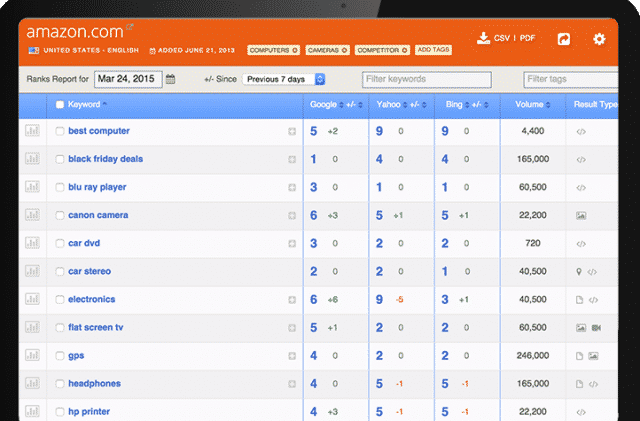Almost half of all B2B marketers say they’re effective at content marketing, but what about the other half? Do you know how your content marketing strategy is going? Is your team creating enough content and using the best keyword terms?
Without performing a content marketing audit, you may not have the answers to these questions. As a business, it’s important to frequently check into all areas of your marketing, especially active campaigns such as a content marketing strategy. Whether you’re the content marketer yourself or the business owner outsourcing content marketing, the following are important questions to help improve your content marketing.
To begin, let’s start with the basic audit questions.
Who?
Who is the content being written for? Even if a demographic has been defined, the type of person you chose to write for can develop and change overtime. Your initial profile of females and males between the ages of 21 and 24 may now have grown to ages 25 to 28.
What?
What is the primary goal for the content marketing campaign? Each marketing campaign is created with a specific goal in mind and should be clear before beginning a new content marketing campaign. One of the many objectives of content marketing can be lead generation.
Three times as many leads are produced by content marketing as opposed to traditional marketing. Aside from leadgen, content marketing can increase website traffic, social media engagement, and awareness of a new product or campaign. What does your business need to accomplish through content?
When?
When will the content be published? Some dates will make more sense than others when deciding on a publish or distribution date. If a piece of content correlates with a new product launch it should be released before the product to create awareness of the upcoming release. Chose a date that aligns with your strategy goals.
Where?
Where will the content be posted? Where a new piece of content will be published can affect its end results. For example, publishing an inforgraphic on Facebook can create different reactions than on Pinterest. A long inforgraphic image will be cut off in a Facebook post, but can direct traffic to an actual landing page that hosts the inforgraphic. Pinterest can host most large infographics as a full-size pin and give followers a better look at the content created without adding website traffic.
Why?
Why produce new content? There needs to be a clear added benefit to creating a new piece of content prior to production.
After getting the basic questions asked, now it’s time to dive a little deeper and discover where the true content marketing strategy lies.
How is Content Being Promoted?
There are so many different ways to get your content promoted online. Choosing to advertise new content on social media is one of the many ways to promote content, while increasing traffic and engagement.
Native advertisements are another way to get new content promoted. These types of ads are developed through companies like Adblade and can give exposure on highly trafficked websites. Decide which advertising routes are best for the type of content produced to ensure the content will be seen.
How Often is the Content Marketing Strategy Evaluated?
Strategies don’t last forever. Some fail quickly while others can perform well over time. Designate a test period for each new strategy to analyze the performance and data. Whether you give a strategy 6-months to perform or a 1-week to begin analyzing data, choose a timeline that makes sense for the strategy’s goals and can be evaluated at the end of the designated period.
What Kind of Voice is Being Used?
Each business should have their own voice when it comes to content. Just as typography and colors can brand a logo, an established voice can brand content. Choose a funny tone to try and lighten a not-so-exciting industry and be consistent with each type of content produced. Whichever voice chosen, it needs to remain consistent across all content: blog posts, website pages, email newsletters, social media posts, etc.
How Are Keywords Being Used?
Keywords are a vital part of content marketing. They’re a big reason why we need to write content and the type of content that needs to be produced. Use tools like AuthorityLab’s Keyword Tool to define relevant keywords and sprinkle them throughout the content, without overstuffing.
Is Blogging the Strategy?
Blog posts make up a huge part of a content marketing strategy, but not 100%. Content comes in many forms such as webinars, infographics, forums, videos, how-to guides, tutorials, and more. Create multiple content types to achieve different types of goals.If you’re looking to increase leads, create a webinar and publish a landing page with a signup form. Blog posts can help support and encourage people to sign up for the webinar, but the main type of content in this strategy is the webinar.
Is There Content Already Developed?
Each day, 60% of marketers are creating at least one piece of content to use. Similar to designing multiple offers, it’s helpful to have multiple types of content already created and ready for distribution. This can be in the form of e-books, guides, and/or videos and relate to the core of your business.A bakery should have “Idea Books” handy to send and show customers to inspire new ideas and businesses with. These books can be compilations of previous orders or 100% unique ideas that employees at the bakery have designed.
A second form of content that would be beneficial to the bakery is a how-to video. In under five minutes, the owner of the bakery can be filmed designing one of their most popular birthday cakes. This is a great way to show the skill level available and give customers a preview of the personality behind the bakery.
Does SEO Have a Role in the Strategy?
Content is not only meant to inform, but to support what a website/business is about. Along with informing, consistently produced and keyword-friendly content will help a website rank for specific search terms. Define what role SEO has in each new content marketing strategy during the developmental stages, whether it’s the primary goal or a supporting one.
How has content marketing helped your business?
Comment below with your thoughts on content marketing and how it has impacted your online presence.



